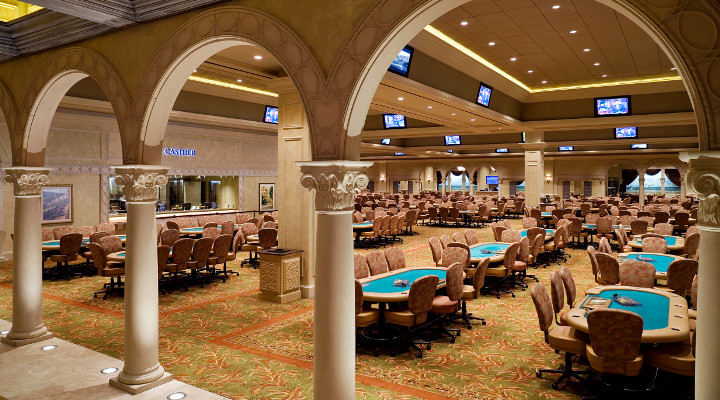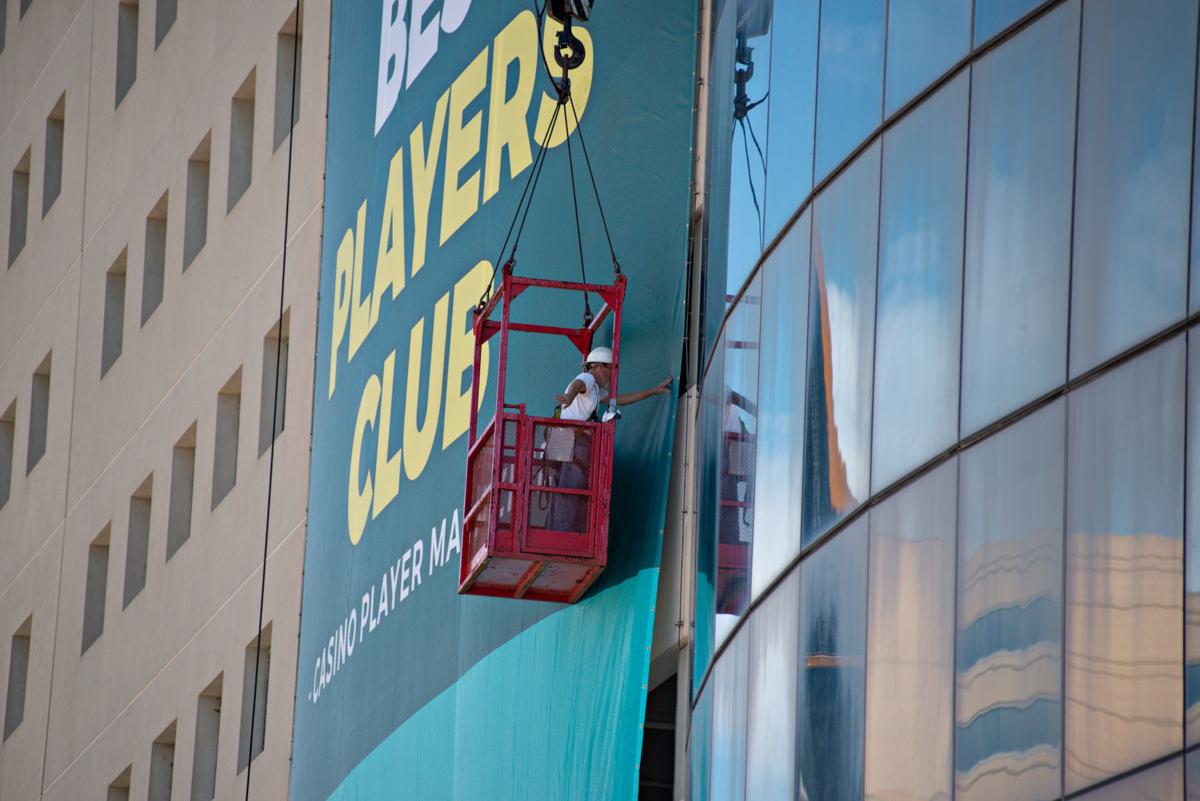ANR Foundation applauds Governor Phil Murphy and the State of New Jersey for taking the important step to reopen Atlantic City casinos 100% smokefree indoors for the health and safety of workers and the general public.
Atlantic City, NJ Since the casinos were exempted in the 2006 New Jersey Smoke-free Air Act, a local ordinance #86 was passed by Atlantic City Council in February 2007 which restricted smoking to 25% of the gaming floor and required separate smoking and non-smoking designated areas. Smoking, drinking and eating will all be prohibited when Atlantic City's casinos reopen after being shut for three months due to the coronavirus outbreak under rules imposed by New Jersey Gov. Under the direction of New Jersey Governor’s Restart and Recovery Commission, Atlantic City is taking a responsible, approach to safety-protocols. Indoor dining is currently offered at 25% capacity during the hours 5 a.m. Maintaining abundant social distancing and the use of face coverings are required. East Rutherford, NJ 07073 (201) 460-4065 Monmouth Park 175 Oceanport Ave. Oceanport, NJ 07757 (732) 222-7700: Freehold Raceway Route 9 & Business Route 33 Freehold, NJ 07728 (732) 462-9495: New Jersey Racing Commission 140 E. Front Street Trenton, NJ 08625 (609) 292-0613. Biz Around the State.
With this action, New Jersey joins other states in its regional gaming market, including Maryland, New York, and Delaware, that already have successful smokefree casinos. Requiring business to be smokefree is a vital step for reopening safely.

Many of Atlantic City’s competitors are already smokefree indoors
Today there are nearly 1,000 smokefree U.S. casinos and gambling venues as a result of the leadership of many cities, states, and sovereign Tribes. With the smokefree reopening guidelines in New Jersey and Michigan, 22 states now require smokefree air inside all commercial gaming venues.
More than 100 casinos have adopted new smokefree indoor air policies as part of their reopening plans. Most recently, Seneca Resorts and Casinos in New York, Mohegan Sun Casino and Resort in Connecticut, and Twin River Casino in Rhode Island announced plans to reopen smokefree.
Casinos At Atlantic City
Some in the gaming industry have criticized New Jersey’s smokefree reopening guidelines, borrowing from Big Tobacco’s playbook and making anecdotal predictions of economic harm.
When Atlantic City previously went smokefree for 30 days in 2008, casino workers finally had the right to breathe safe air in their job. However, the ordinance was rescinded under intensive industry lobbying pressure. Despite the reversal of the law, gaming revenue kept spiraling down instead of resurging because current gambling trends were already on the decline due to competition from new (or expanded) gaming in Pennsylvania and other traditional “feeder markets” for Atlantic City. People in D.C or Philadelphia didn’t need to drive to Atlantic City anymore for a casino.
Atlantic City gaming revenues losses were never about indoor smoking rules: it was because of new casinos opening in nearby states such as Maryland, Pennsylvania, and New York. Also, the 2008 economic recession meant a significant reduction in discretionary spending for casino patrons. Gaming revenue at that time was down across all markets regardless of indoor smoking status.
Secondhand Smoke and COVID-19
In the era of COVID, indoor smoking is an urgent respiratory health hazard that can be easily addressed by shifting smoking to outdoor areas and away from staff.
Secondhand smoke is a risk factor for susceptibility to more severe COVID-19 symptoms because of the demonstrative impact it has on underlying health conditions including heart disease, diminished lung function, and associated risk of respiratory illnesses. In a casino, pulling down masks to blow smoke and respiratory droplets creates even more of a health gamble in the context of COVID-19.
Notably, casino ventilation systems do not address the health hazards of secondhand smoke.
A lot has changed on the issue of indoor smoking for the gaming industry since early partnership with Big Tobacco via schemes such as the Philip Morris Options Project that sought to undermine smokefree casino policies. Today, 90% of Gen-Z and Millennials and 92% of older Americans age 65+ are nonsmokers. Most casino staff and customers are nonsmokers. Smokefree environments help attract more nonsmokers and support the growth of non-gaming amenities. It also bolsters HR and operations measures, such as improved employee retention, reduced absenteeism, and reduced cleaning costs related to servicing indoor ashtrays and/or smoke filters. In this current environment, smokefree indoor air shows that the health and safety of staff and guests is a priority.
After the 1918 flu epidemic, public spittoons disappeared from hospitality venues. With COVID-19, it’s time to finally end indoor smoking in hospitality gaming workplaces too.
For more information, visit https://smokefreecasinos.org/reopening-casinos-smokefree-the-new-normal/
New Jersey’s smoking law bans smoking in most public places. If Gov. Phil Murphy signs a law on his desk, casinos may be one of the last bastions for smokers.
The law in question, S 2534, would ban smoking at all public beaches and parks in the state of New Jersey. The law is a revision of the Smoke-Free Act of 2006.
The Assembly and Senate both passed the bill in May 2018. However, it is unknown when Murphy will sign the bill. In fact, he could choose to veto or put the bill in a drawer, if he chooses.
The state government is still shaking off the effects of a threatened government shutdown. The necessary wheeling and dealing disrupted much of the typical lawmaking and delayed Murphy’s decision on several bills.
This revision would not be the first to the law. In 2010, an amendment added electronic cigarettes to the list of banned items.
Casinos are one of the few exempted properties for smoking
Should the new law receive Murphy’s signature, smoking tourists may find themselves increasingly chased into the casinos.
Part of the language of the original bill allows casinos, horse tracks, cigar bars, tobacco shops, and private areas to permit patrons to light up.
Smoke Free Casino In Atlantic City Nj Restaurants
However, the law specifically says that “smoking may, although need not, be permitted.” In other words, a casino or racetrack could legally not allow smoking at their facilities.
This language is what permitted the now-defunctRevel to politely ask patrons to refrain from smoking. Unfortunately, the decision ended up creating ill-will and irritation in its customer base.
Gambling and smoking tend to go together — most descriptions of historical gambling halls reference the smoke-filled rooms. As a result, within months of its grand opening, there were already indications that casino management was considering some manner of revocation for the rule.
Revel management certainly had noble intentions. However, the no-smoking rule became emblematic of the property’s ills. Revel’s focus on richer, non-smoking patrons drove potential customers into the arms of other casinos.

Smoke Free Casino In Atlantic City Nj Boardwalk
Ocean Resort Casino is trying to learn from Revel’s past mistakes
So, it likely came as no surprise that Ocean Resort Casino, the renovated casino that opened in Revel’s old building on June 28, sought to avoid its predecessor’s mistakes.
Atlantic City Casino
Owner Bruce Deifik announced a wide variety of changes at Ocean Resort, both in terms of physical and philosophical.
Chief among those changes was to permit visitors to the property to light up as they see fit. That permission aligned with Deifik’s focus on a more middle-class patron for his casino.

Some of the other changes include the construction of a buffet and the arrival of Atlantic City’s first TopGolf location. These types of activities were always avoided under Revel ownership.
A casino without a buffet is no friend of mine.
